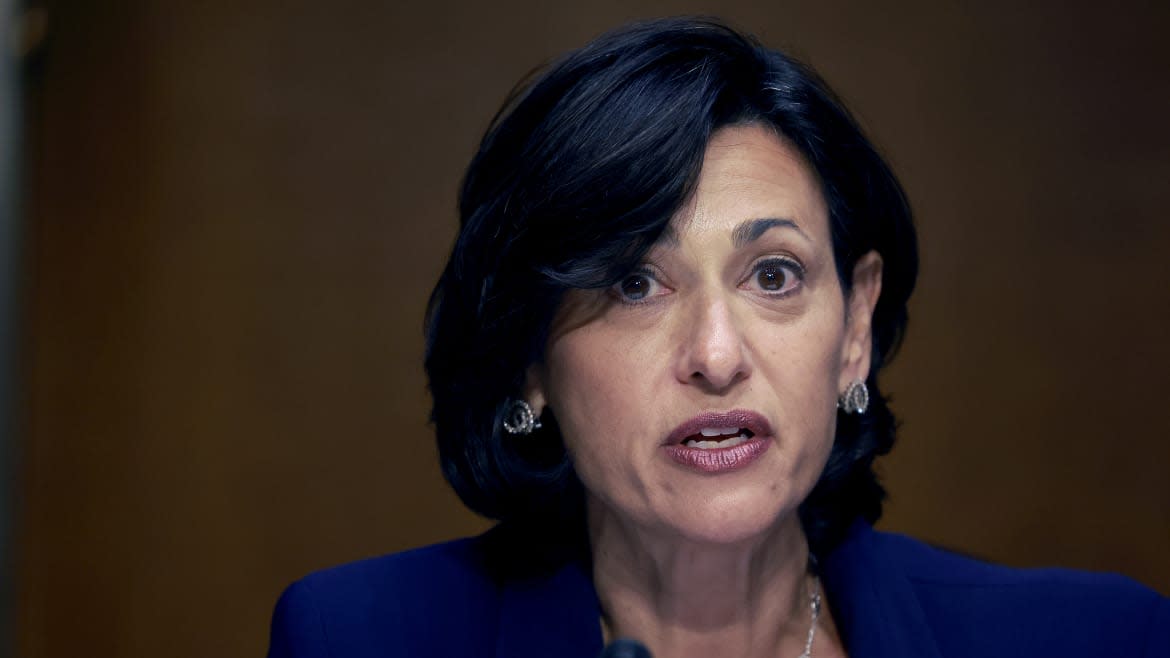Public Health Experts Express ‘Cautious Optimism’ Monkeypox Vax Is Slowing Spread of Disease

Patients who have been vaccinated against the monkeypox virus were 14 times less likely to become infected than those who had not been vaccinated, according to initial data released by the Centers for Disease Control and Prevention on Wednesday, which public health officials say should provide “a level of cautious optimism” that the vaccine may help slow the spread of the virus
Dr. Rochelle Wolensky, director of the Centers for Disease Control and Prevention, told reporters on Wednesday that the first data on the vaccine’s effectiveness is a strong, if early, indicator that the Biden administration’s strategy on the viral outbreak is working.
“There have been limited data on how well the Jynneos vaccine performs against monkeypox in real-world conditions,” Wolensky said. “These early findings and similar results from studies and other countries suggest that even one dose of the monkeypox vaccine offers at least some initial protection against infection.”
How the U.S. Could Boost Monkeypox Testing With One Simple Fix
Since the emergence of the previously rare monkeypox virus in Europe and North America in late spring, more than 66,000 cases have been identified in more than 100 countries. Nearly one-third of those cases have been detected in the United States, primarily among gay and bisexual men.
The initial vaccination campaign for the virus—which causes flu-like symptoms and blisters often found on the hands, face and genitals, which can leave permanent and painful scars—was marred by bureaucratic snafus that trapped hundreds of thousands of doses overseas and limited access to experimental treatments. Public health experts and LGBTQ advocates grew increasingly frustrated with the pace and implementation of the vaccine rollout, which at times made booking a vaccination appointment seem like winning the lottery.
Since then, Wolensky said, the United States has successfully delivered more than 800,000 doses of the two-dose vaccine—but data on the vaccine’s efficacy has been hard to come by. The Jynneos vaccine was granted approval for monkeypox only under animal studies, rather than human trials, making this first tranche of data the best indicator yet that the vaccine may effectively prevent infection in people.
“We need to make sure people know about this early good news and encourage those who could benefit from the vaccine to get both their first and second dose,” said Dr. Demetre Daskalakis, a prominent sexual health advocate and the White House’s deputy coordinator for monkeypox response. “This knowledge is power and allows people to make more informed decisions about their health and build confidence in this important two-dose vaccine.”
Daskalakis said that the government’s focus has increasingly turned to boosting availability of the vaccine to underserved groups, including LGBTQ people of color and transgender people, who have faced higher risk of contracting the virus and lower access to the vaccine. Among those efforts is the decision to allow clinicians to inject the vaccine in more discreet locations on the body. The current regimen, adopted due to supply shortages, calls for an intradermal vaccine under the skin of the forearm, which causes a temporary but conspicuous bump.
“Some people declined the vaccine to monkeypox because of the stigma associated with the visible but temporary mark,” Daskalakis said, continuing that new guidance allows for patients to opt for a vaccine by their shoulder or upper back.
“Those are areas more frequently covered by clothes,” Daskalakis said.
But there are still gaps in what public health authorities know about both the virus, which despite not being officially designated a sexually transmitted infection has largely behaved like one, and the vaccine, which has been given in multiple methods and multiple dosages since its initial rollout in June.
Wolensky cautioned that changes in behavior by members of high-risk groups may still be playing a large role in the recent reduction in national case numbers, and encouraged fully vaccinated people to “consider reducing behaviors that could increase the risk of exposure,” including reducing their number of sexual partners and avoiding places and events where skin-to-skin contact is frequent or unavoidable.
“CDC will continue to evaluate how these things are working in the current outbreak,” Wolensky said, and is evaluating incoming data to “help us understand the level of protection provided and how long that protection lasts.”
Get the Daily Beast's biggest scoops and scandals delivered right to your inbox. Sign up now.
Stay informed and gain unlimited access to the Daily Beast's unmatched reporting. Subscribe now.

